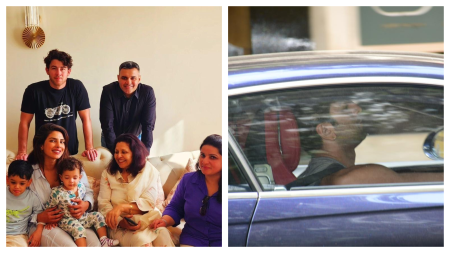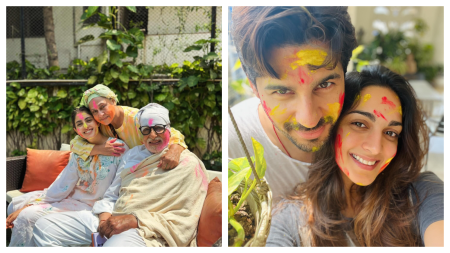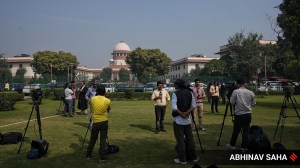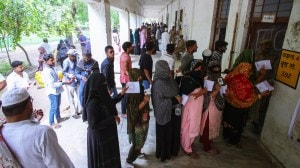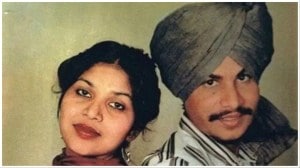- India
- International
Poised for change
With Doordarshan being gripped by the make-over fever, I & B minister Arun Jaitley invited producers to discuss the nitty-gritty of revamping the channel. Screen looks at the viability of the minister’s proposal
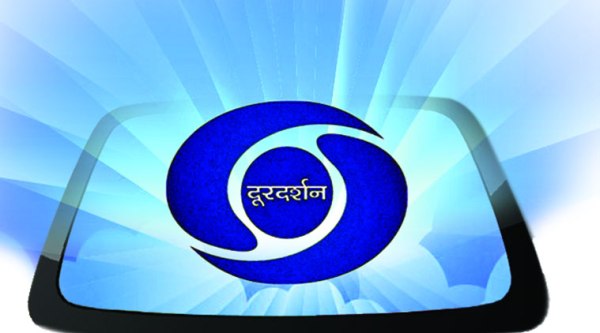 Doordarshan
Doordarshan
By Priyanka Bhadani
Almost the entire country waited on a Sunday morning for the clock to strike nine. That was close to three decades ago, when the television audience across India kept everything on hold to watch the immensely popular Ramayan. The reach and impact of the show was so big that Arun Govil and Deepika Chikhalia (the on-screen Ram and Sita) were worshipped throughout the country.
Govil has often mentioned in various interviews how he could never come out of the impact that his portrayal of Ram created and how he was trapped in that image, playing similar roles over and over again. It’s not surprising, as it wasn’t just Govil who was stuck with the God-like image, other actors including Alok Nath (as Master Haveli Ram in Buniyaad), Nitish Bharadwaj (as Krishna in Mahabharat) among a slew of other actors went through the same experience.
While the country’s first television channel, Doordarshan had a successful run over a significant period of time, its power and hold over the audience began to wane as other private players came into the picture. The first to step into the fray was Zee TV with shows like Tara, Banegi Apni Baat, Hum Paanch, etc started taking over the public broadcaster, and soon a number of private general entertainment channels made their presence felt challenging the might of Doordarshan. But the newly-appointed Information & Broadcasting Minister, Arun Jaitley has taken on the onus to restore Doordarshan’s lost glory.
In an attempt to initiate the process and understand the reason why big and well known producers are shying away from making programmes for Doordarshan, Jaitley held a meeting with them a fortnight ago. Interestingly, after listening to some of the producers who were present at the event, the minister has offered full support and asked them to come forward and help revamp Doordarshan.
With almost nine private broadcasters in the GEC category with a few more coming up in the near future, there is enough space for the producers to showcase their content. But, in the case of DD, the problem is deep rooted, according to producer Rajan Shahi (Yeh Rishta Kya Kehlata Hai), who was also invited by the government, but had to skip it because of prior commitments.
“As a producer, I would love to work with DD. Over the years, some of the best shows have happened on Doordarshan — whether it was Hum Log, Buniyaad, Discovery of India, or the immensely popular Rajini,” says Shahi, highlighting the fact that DD, with its show Shanti, had started the trend of the matinee television shows. “The kind of reach that Doordarshan has is very commendable. But after private players came into the picture, there has been a shift. The general perception among producers about the public broadcaster is that there’s a lot of bureaucracy and red tapism involved. Besides, there are budget constraints as well,” he says and adds that as a producer, one cannot station himself in Delhi and go through these things for just one show. “Especially, when private broadcasters have always given good and genuine producers the platform that they want. The process is much more easier with them,” he adds.
Surprisingly, the sentiment is echoed by other producers too. Siddharth Kumar Tewary, who has over the last few years delivered some of the best shows (Amber Dhara, Agle Janam Mohe Bitiya Hi Kijo and Mahabharat) on the small screen in partnership with the biggest GECs like Sony Entertainment Television, Zee TV and Star Plus, says that the procedure and style of working of a private player and the public broadcaster are poles apart. “Over the years, private channels have built a great relationship with the viewers by constantly delivering high quality content. They give us enough reasons to work with them. Doordarshan hasn’t been able to match up to them either in quality or process to attract talent to their platform. Having said that, if they do revamp the channel, then they can surely take on private broadcasters, but it’s not something that will happen overnight. If they consistently deliver, the game can change,” he remarks.
It is not that difficult, however, to change or reform the policies, asserts producer Yash Patnaik. While he agrees that there are more gates and limitations in case of the public broadcaster, he also believes that it can be revived with support from the entire industry. “It is an excellent opportunity as satellite and cable have yet to achieve the reach that DD has,” he remarks, also explaining that once DD makes its business policies more conducive towards TV producers, things will change.
Agrees producer Sudhir Sharma, who thinks that it’s a superb idea purely because of the kind of reach that DD has. “It is, and can become the most powerful communication tool for new India. And I am sure the energy of the new government can fulfill this effectively. This is one aspect that the producers community is dreaming of for so many years,” he says.
Some producers feel that a little push is required in terms of marketing and budget. Unlike private broadcasters, who go all out to promote and create a buzz about their shows, the pubcaster lacks the punch. It may also be because of the officials who have been holding top positions at the channel since many years, believe the producers.
“DD should get younger generation into the picture. The requirements of audience have changed. Now, content needs to be innovative. The pubcaster has to change its orthodox approach and work upon strategies with new perspective to make it more dynamic,” remarks Nikhil Sinha, who created a huge impact with the mythological series Devon Ke Dev…Mahadev, attracting the young and old alike.
Shahi thinks that while hurdles are encountered everywhere, only the intent to bring about a change can override all the negative points. “Earlier this year, the proposal for one stop permission for shooting anywhere in India has been a step forward in the direction. The government is trying to make things easier and it is just a matter of time and effort to reach the place it wants to,” he concludes.
While the government is making efforts to usher in changes, whether its actions will translate into ‘achche din’ for Doordarshan, only time will tell.
Hum Log
India’s first soap opera, it began telecast in July, 1984 and told the story of an Indian middle-class family of the ‘80s
Ramayan
Arun Govil and Deepika Chikhalia as Ram and Sita, were worshipped by the entire country because of the impact the show had created.
Mahabharat
The Indian epic that was only read by the masses became a rage in the late 90s when Doordarshan aired it on Sundays
Bharat Ek Khoj

It was one of the first books (Discovery of India) to be adapted into a television series by Shyam Benegal for Doordarshan
Buniyaad
Written by Manohar Shyam Joshi, it dealt with the Partition of India, and aired in 1986, making many actors a household name
Fauji
Shah Rukh Khan played the male protagonist Major Rajveer Shergill, an army man and became extremely popular.
Vikram Aur Betaal
Arun Govil re-created his magic with Raja Vikramaditya’s character in the the program was based on fables of Baital Pachisi
Mowgli
DD dubbed the Japanese anime to keep the kids of the early ‘90s entertained with an original track created by Vishal Bharadwaj
priyanka.bhadani@expressindia.com
Photos
Apr 26: Latest News
- 01
- 02
- 03
- 04
- 05





















